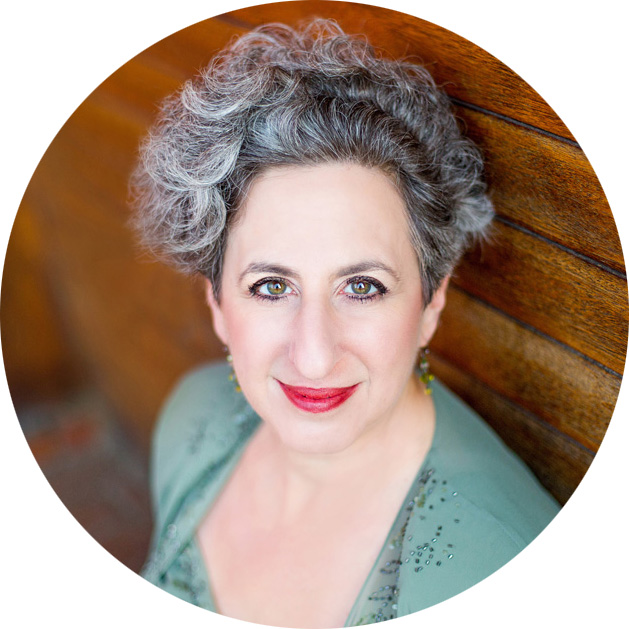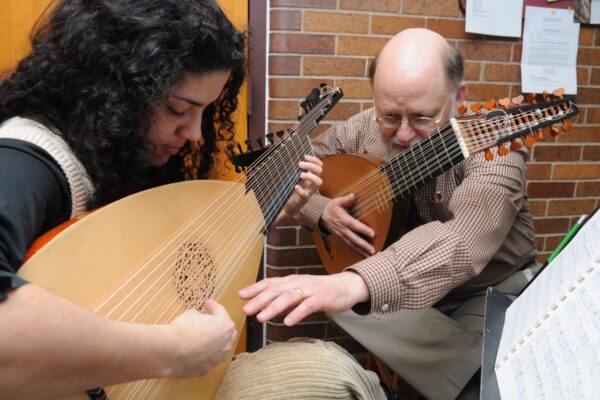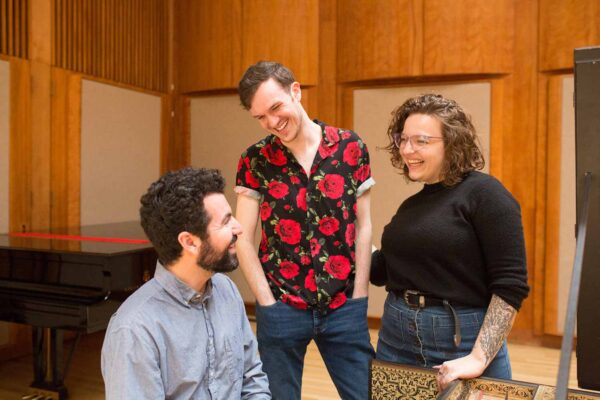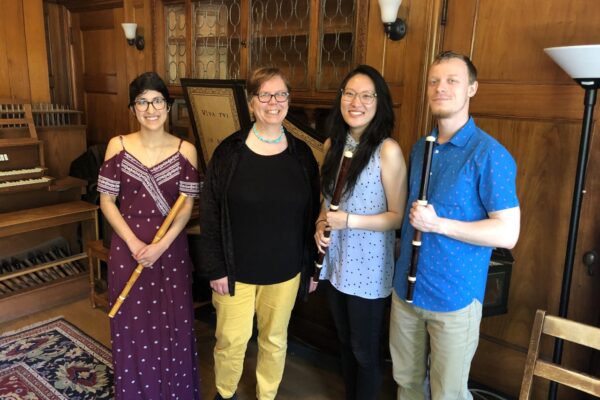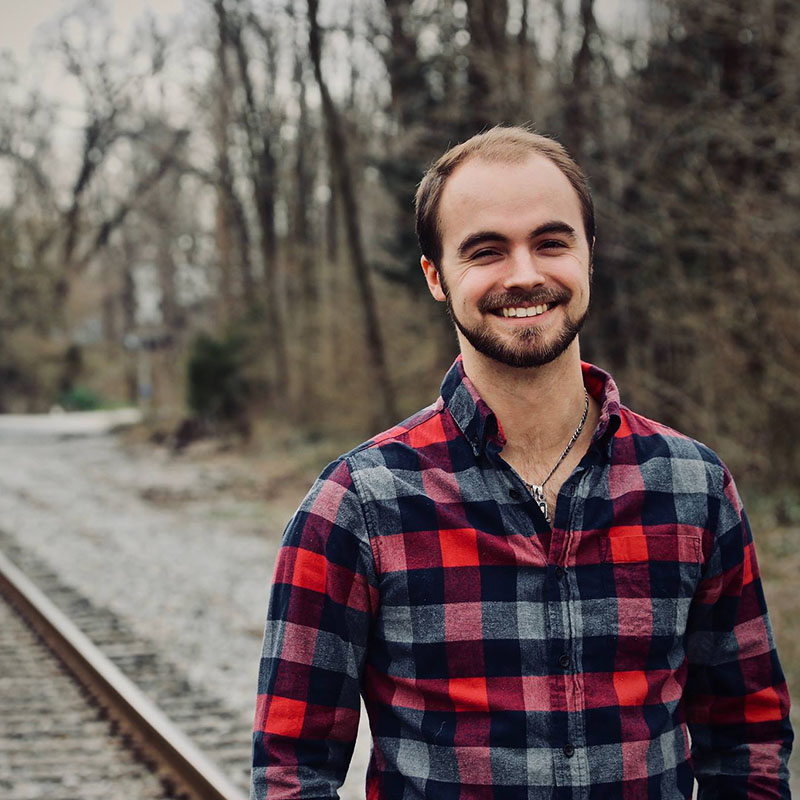Historical Performance
Historical Performance Faculty
Anne Azéma, voice
Phoebe Carrai, baroque cello
Sarah Darling, baroque violin & viola
PamELA Dellal, voice
Libor Dudas, harpsichord, ORGAN
Douglas Freundlich, lute
Stephen Hammer, baroque oboe
Jane Hershey, viola da gamba
Sonja Lindblad, recorder
Na’ama Lion, baroque flute
Dana Maiben, baroque violin & viola
John McKean, harpsichord, music history
Vivian Montgomery, harpsichord
Kathryn Montoya, baroque oboe & recorder
Ken Pierce, period dance
Andrew Schwartz, baroque bassoon
Anne Trout, baroque bass/violone
“Longy boasts one of North America’s most well-known and dynamic departments of historically-informed performance. At Longy, students work together with members of the department’s renowned faculty to further cultivate their individual artistry through repertoire, research, and a wide range of performance-oriented projects, including collaborations with internationally recognized institutions and ensembles such as the Boston Early Music Festival and the Boston Camerata. With its vibrant performance culture and deep engagement with the larger Early Music community, Longy’s Historical Performance department advances the conservatory’s mission of preparing musicians to make a difference in the world.”
—John McKean
Longy faculty, students, and alumni perform with The Boston Camerata’s production of Purcell’s Dido & Aeneas.
Program Highlights
Historically informed performance plays a central role in Longy’s artistic and academic life. The curriculum focuses on both repertoire and research in its approach to music composed before 1800, featuring some of the most unique and thorough course offerings in early music in the United States. Students will also have the opportunity to work with partners like Boston Camerata and the Boston Early Music Festival.
Course HIGHLIGHTS
Hildegard von Bingen: A Feminine Universe
Hildegard von Bingen had a powerful vision of the role of the feminine in the divine plan. Learn about women’s participation in worship, in salvation, and in the world through her theology, poetry, and music in original notation.
Digging for Songs in the Ground: Crossing Centuries with Ground Bass Improvisation and Compositions
This interdepartmental course covers a wide range of eras, styles, and ethnicities that share a common denominator: ground bass improvisation. From Byrd and Monteverdi to Ellington and Winehouse, students curate a program that spans centuries.
More Program Highlights
Studio Lessons: Collaboration with a faculty mentor is the cornerstone of conservatory education at Longy. Together you will explore your unique artistic and professional goals while expanding your technical and musical insight. Early music faculty members include renowned performers and musicologists, all of whom maintain active roles in the field.
Masterclasses and Seminars: Through workshops, masterclasses, discussions, and presentations, weekly seminars allow early music students to explore a wide range of technical, historical, theoretical, and aesthetic issues.
Chamber Music: Georges Longy’s belief in the power of collaboration inspires the central role of chamber music in our conservatory. You will work closely with faculty coaches every semester and explore ensemble playing through coursework, informal readings, and community outreach.
Performance Practice: Topics courses allow students to research specialized areas of study focusing on the intersection of performance and scholarship. Recent offerings have included Baroque Ornamentation, Rhetoric of Baroque Performance, as well as Culture and Convention of Mozart’s Operas.
Performance Courses: Classes include the study of original sources and theoretical materials, culminating in a public performance. Recent courses include:
- 12th-Century Vocal Repertories of Germany and France
- Early opera project: A Orontea by Cesti
- English Theatre Songs
- J.S. Bach for Viols
- Medieval Masters of Italian Trecento
- Music from Odhecaton
- The Intimate French Baroque
Example Performance Courses
Longy students collaborated in the Boston Camerata’s production of The Play of Daniel.
In the spring of 2016, Longy students capped off a semester-long collaboration with the Boston Camerata in a co-production of The Night’s Tale, A Tournament of Love. Performed on April 16 and 17, 2016 in Longy’s Pickman Hall, the concerts earned rave reviews in the The Boston Globe and Boston Musical Intelligencer. View pictures from rehearsals and the performances here.
Figured Bass Practicum: Students learn continuo playing while developing flexibility within collaboration and exploring a wide spectrum of repertoire.
Historical Dance for Musicians: Exploring both Renaissance and Baroque Styles, students learn dances including the sarabande, galliard, and menuet to better comprehend similarly titled pieces of the period. Students also play and sing for dancers, paying particular attention to tempo, articulation, character, and form.
Historical Performance Emphasis: Available to Brass, Strings, and Woodwinds students, this emphasis enables you to further hone your musical expertise by exploring a historical performance component.

